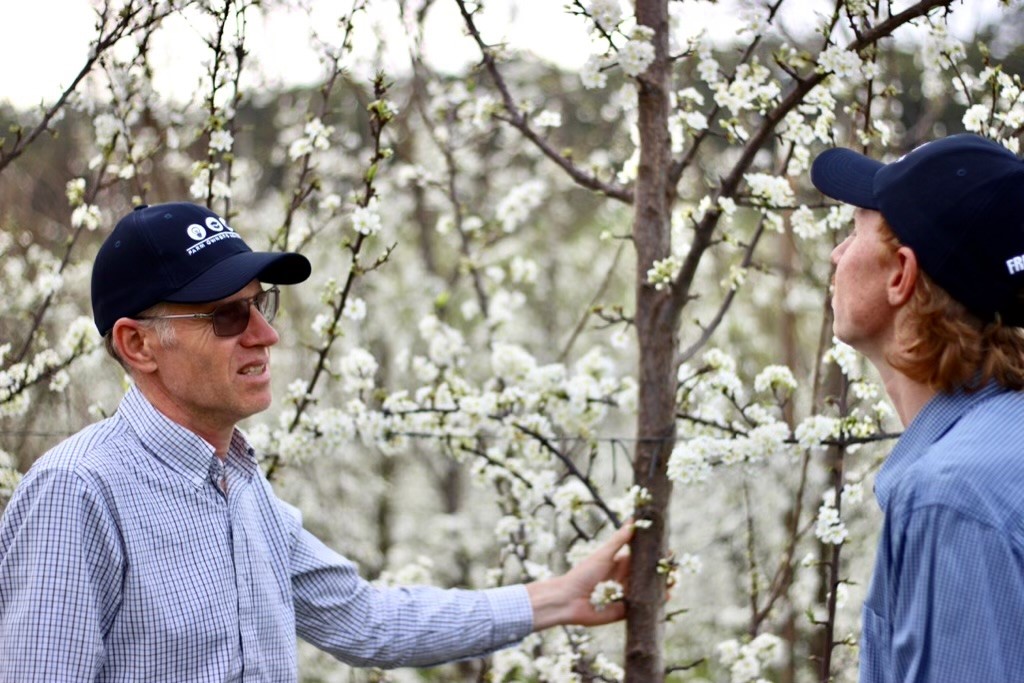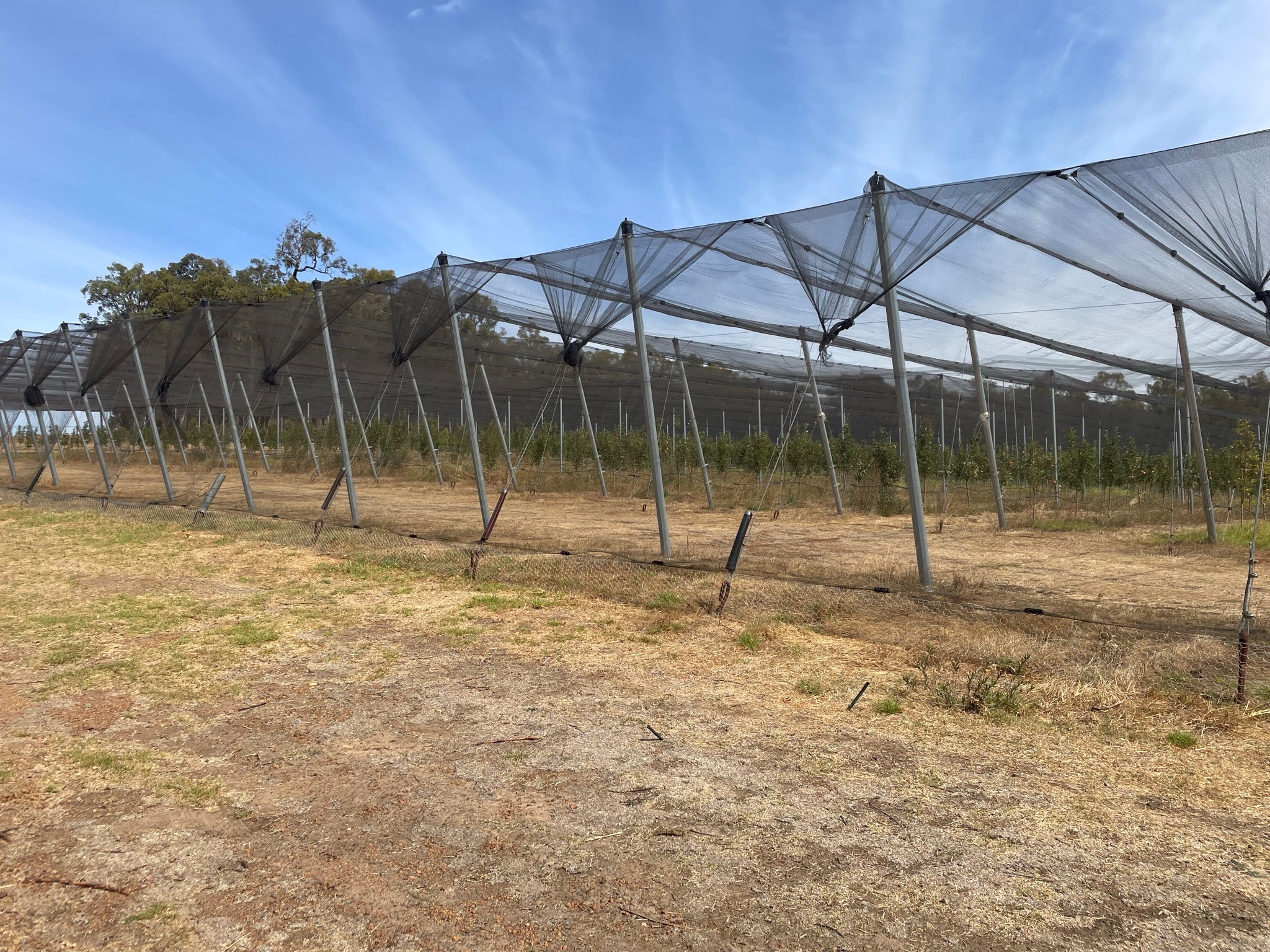Primary producer takes advantage of low-interest RIC loan to renew farm during dry conditions

13 June 2024
Organic farmer Jason Jarvis is using a RIC Drought Loan to renew his orchards and protect produce during times of unprecedented dry and difficult growing conditions.
The third-generation farmer runs Prime Organics, a 30-hectare commercial organic fruit orchard and packhouse along with a 200-hectare beef cattle finishing operation, near Donnybrook in south-west Western Australia.
Jason successfully applied for a RIC Drought Loan to allow his business to recover from the 2017-2020 drought.
Now he continues to benefit from the Australian Government-provided concessional financing to manage through prolonged rainfall deficiencies which have occurred since 2023.
“We’ve had the driest summer that we’ve ever had in the history of farming here,” Jason said.
“The level of rainfall we had last year didn’t even half fill our dam.”
Jason supplies apples, pears and stone fruit to major supermarkets and normally irrigates his trees during the warm season.
But his orchards completely ran out of water during a week of 40-degree heat.
“Luckily, because of our high organic matter level in the soil, the trees didn’t suffer too much,” he said.
"We lost quite a bit of fruit on the trees where the temperature was too hot and the fruit cooked internally, basically.
“Certainly, the level of sunburn was noticeably higher, not just for our orchard but across the board.”
RIC Drought Loan benefits business
Jason said the improved cash flow from the RIC Drought Loan interest savings are a large component in an overall plan to renew his farm. The additional funds have enabled him to plant new pink lady and royal gala apple trees to replace ageing sections of his orchard.
He has also installed permanent netting infrastructure which will protect fruit from harsh weather and bird damage while also reducing tree stress and water usage.
“I’m very grateful for the opportunity to be able to do what we’re doing,” Jason said.
“Being able to do that is going to set us up for a good future.”
RIC reviews its variable interest rates every six months, allowing customers greater certainty when planning their business cash flow and repayments.
Jason said the concessional interest rates offered by the RIC were beneficial during a time when less than favourable growing conditions, high interest rates, and increased input costs had a compound effect on finances.
“It’s difficult to have such a large loan over your head when that’s happening, that’s for sure,” he said.
RIC Drought Loans are available for eligible primary producers to help prepare, manage through, and recover from drought.
Farmers can apply for up to $2 million in financing, with a loan term of 10-years with interest-only payments for the first five.
Applicants must meet key eligibility requirements which include providing a drought management plan, retaining a minimum of 50% commercial debt, and demonstrating a financial impact over a minimum 2-year period.
Widespread difficult growing conditions
Jason is the chair of Pomewest — the industry body for Western Australia apple and pear producers — and vice chair of COBWA — the state industry group for organic producers.
He said other growers had experienced similar conditions with many choosing to forego irrigating old or less productive parts of their orchards.
While he was uncertain if recent climate conditions would affect fruit production next growing season, he said weather conditions need to turn to bring sufficient water.
“We need a good runoff and good rainfall this coming winter so we can replenish those stocks.”

